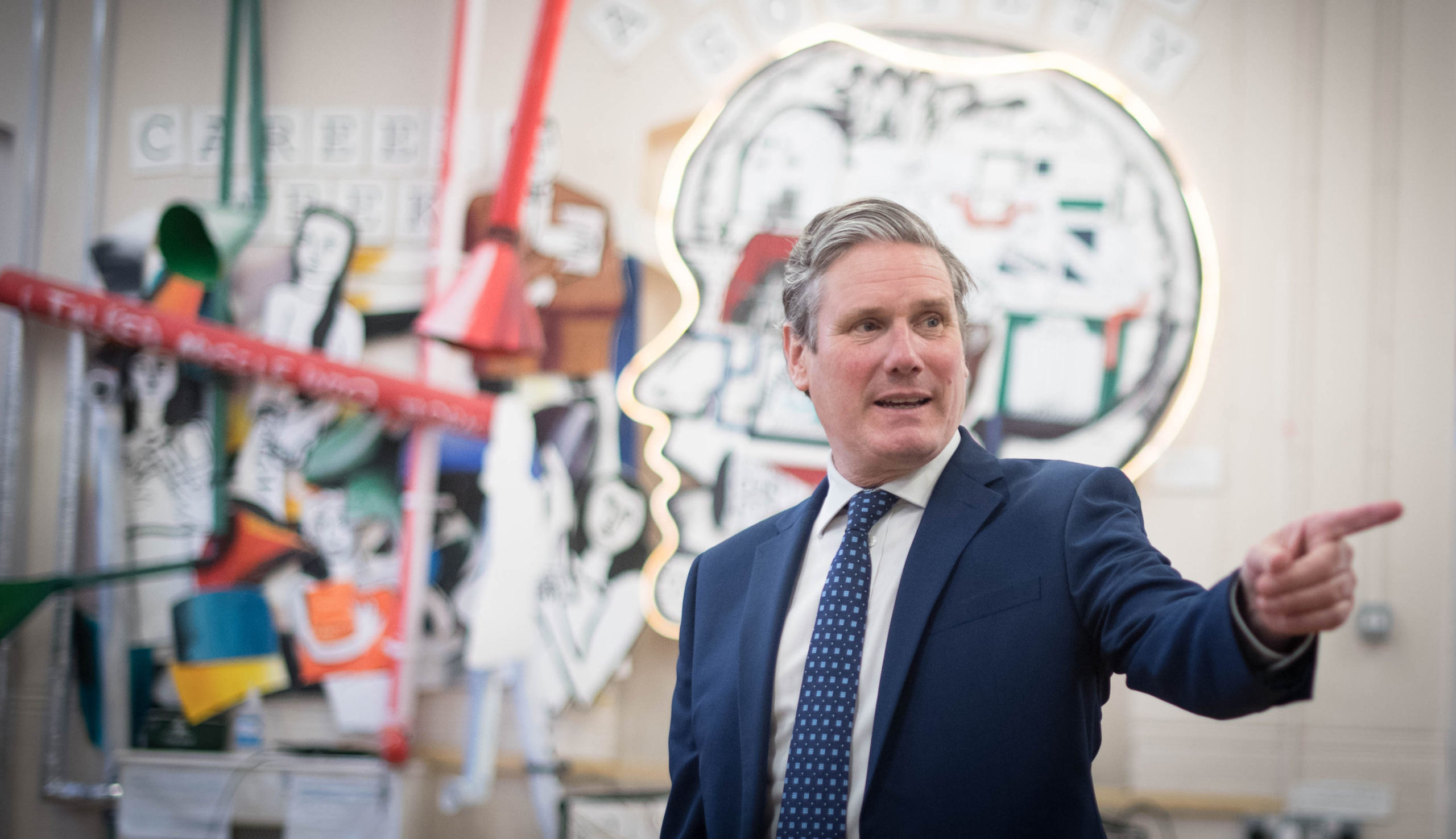
For all its other, well-documented failings, under Jeremy Corbyn’s leadership Labour not only had a perceptive understanding of the major challenges of this century, but a policy programme sufficient to address them.
From a Green New Deal to building one million homes in five years to a national care service, Labour had a clear, decisive vision on the biggest problems of our age, like climate change, housing precarity and demographic ageing. On the issue of Britain’s dying high streets, there was the offer of a national investment bank; on young people and a lack of opportunity there was the promise to scrap tuition fees and equalise, as well as increase, the minimum wage across ages. On childcare there was the offer of not only returning to the provision Britain enjoyed before 2010, but going further still. How this would all be paid for was equally clear: by taxing the wealthy.
While it’s true to say such a programme took years to formulate, it was embryonic in both of Corbyn’s leadership campaigns – particularly the second – before crystallising with remarkable clarity by the 2017 election. It’s easy to grasp why, on matters of domestic and economic policy, things were relatively straightforward: these policies were simply an extension of Corbyn’s values, worldview and analysis.
Which brings us to his successor, Keir Starmer. Although keen to emphasise his activist past while campaigning for the Labour leadership, his time in the top job has already witnessed a marked departure from his predecessor – with policy coherence giving way to equivocation.
In Starmer’s defence, the events which presaged this were unforeseen – the advent of the coronavirus crisis demanding Labour’s leader, who has only been an MP for five years, become a national figure when the plan had been to focus on internal party management. But the situation has dramatically changed, and with as many as 65,000 people having died as a result of the coronavirus, shortcomings, as well as strengths, come into sharp relief for all concerned. Just ask Boris Johnson.
As Britain’s economy experiences its worst ever downturn, the Labour leader’s catchphrase is ‘jobs, jobs, jobs’. To which the rejoinder should be, what kind of jobs? Earning how much, and where? After all, under the coalition government, Britain had an ‘employment miracle’, experiencing its highest ever levels of employment. And yet this was almost universally low paid, precarious work – often the result of outsourcing or zero hours contracts. These aren’t the kind of jobs Labour should be demanding. ‘Keir doesn’t mean that’, his doughty defenders might rebuke. Well, if that’s the case, then he should say so.
It’s the same on the climate emergency – an area where the previous leadership made progress in not only shifting public opinion but in pushing some of the first climate emergency legislation anywhere in the world. Now Labour is saying remarkably little on the subject – especially troubling in the context of not only the coronavirus, which offers Britain a historic opportunity regarding energy transition, but as the arctic endures a historic heatwave.
Then there is organised labour. Under the previous leadership, Starmer would attend picket lines and speak of the need for Labour to return to its roots. And yet on the issue of child and staff safety in schools, Starmer has sided with the government over the National Education Union (NEU), saying schools should have already opened and that the problem is purely technical. Rather than citing what the NEU thinks, Starmer refers to mythical head teachers who, we are told, happen to agree with him (the British Medical Association don’t). When asked whether schools should open come September, and whether parents should be punished if their children fail to attend, he is unable to give a straight answer.
Finally is the issue of Black Lives Matter, a cause which Keir Starmer claims he is sympathetic to. And yet when asked whether he agrees with its more radical demand of defunding the police, he replies that it is “nonsense”. While it would be foolish to expect a former director of public prosecutions back calls for defunding the police, it is revealing that a (white) Labour leader is keen to perform tokenistic solidarity with black people while avoiding a conversation around their substantive demands. If Starmer disagrees with defunding the police, which you’d expect, then what does he agree with? If he thinks pulling down the state of Edward Colston wasn’t right, then – given peaceful means of having it removed had already been pursued and exhausted – what else does he suggest? Starmer has called Black Lives Matter a “moment”, claiming it shouldn’t be tied up with organisations. But when the organisations that make up this movement have been formed and are led by black people, maybe this isn’t for him to decide. If black lives matter, giving space to black voices is a prerequisite. This “moment”, as he so blithely put it, certainly isn’t about white people determining the limits of acceptable anti-racism.
Before March, Starmer could never have anticipated how quickly he would need to formulate a coherent political and economic alternative. Yet this is a job he has long coveted, even producing videos for his leadership campaign while on the election trail in 2019. Despite his mandate and CV, what Labour’s leader actually thinks about the economy, climate change, public services and racialised policing is unclear.
This is troubling because at the very moment the Tories are trying to don the garb of the ‘New Deal’, Starmer’s Labour appears intent on dispensing with it. As Rishi Sunak oversees a programme which, only months ago, would have been derided as Marxist by the right wing press, Labour seem weak and unsure of what they actually want and stand for.
Successful politicians need convictions, especially in moments of crisis. What are Keir Starmer’s?
Aaron Bastani is a Novara Media contributing editor and co-founder.